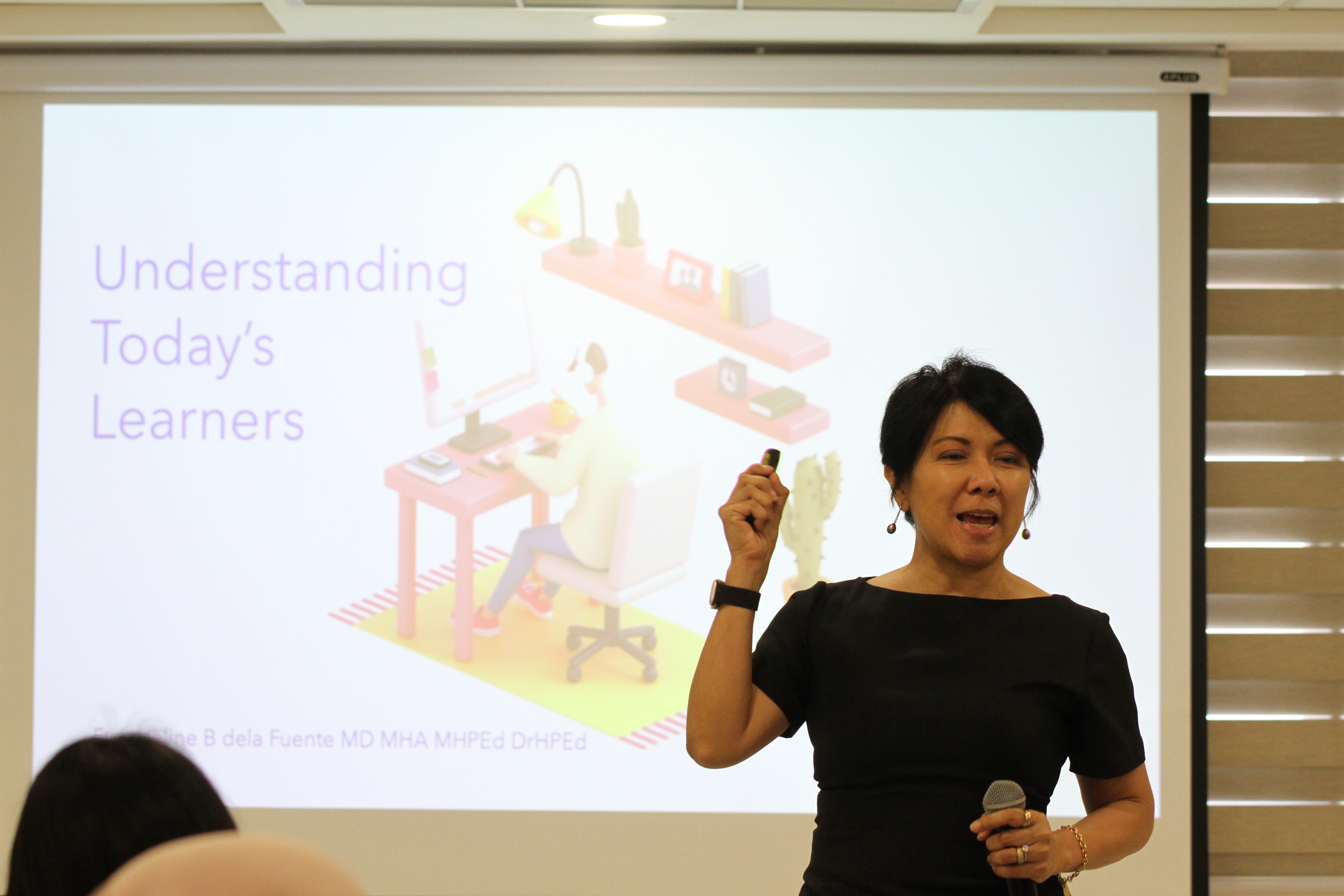Text by: Jennifer Manongdo
Photos by: Sarah Hazel Moces Pulumbarit
While previous generations have endured long hours of old-school note-taking and other study tools, the technology-savvy Gen Z population (those born between 1997 and 2012) can just press a button on their smartphones and record the entire lecture and transcribe it via a transcription tool. Instant notes. Forget the archaic whiteboard. Images and their text description are conveniently uploaded to the cloud, ready to be pulled out for review anytime. Scientific journals are also easily accessible on the web. All these modern conveniences challenge traditional medical teachings, pushing academicians to implement creative strategies to capture the evolving learning preferences of students in white colleges.

Visual Learners
The rise of visual learners has contributed to the decline of traditional, lecture-based teaching methods. An increasing number of professors are adapting their approach to better engage students in the classroom, such as by incorporating more visual learning procedures and interactive experiences. Aside from incorporating trendy phrases to capture students’ attention, Dr. Evangeline dela Fuente, Chairperson of the Department of Psychiatry emphasized the importance of effective time management and timely assessment and feedback during her discussion at the Faculty Development Program for Medical Educators held on June 26-27, 2025, at Henry Sy, Sr. Hall.
Then, there is the issue of mental health.
“They have a greater propensity to open up about mental health struggles,”
Dr. Dela Fuente added.
AI in Education
While many industries are still debating the dangers of using artificial intelligence, medical institutions swiftly embraced the technology to enhance the learning experience of students.
AI has effectively addressed knowledge gaps and has provided customized learning strategies, but it must remain a tool and not a decision maker.

“AI is just a tool in our armamentarium. Don’t let it control you,” Dr. Alvin Marcelo, President of the Philippine Society for Digital Health, said. “Remember, it’s only a small, small part of our reality.”
AI has proven to be beneficial in the following disciplines or scenarios: clinical oncology, dermatology, prediction of postpartum depression, diagnosis of diabetic retinopathy in youth management, nutrition counselling for patients with diabetes and other chronic diseases, preventative care, and the medical robot sector. However, Dr. Marcelo warned against the flaws of AI: Hallucinations (adding ideas that are not supposed to be there), Forgetfulness (omitting ideas that are supposed to be there), and Bias (having ideas that lean towards a certain way).
He suggested the creation of a data governance and AI council to ensure security, ethical use of AI, and protection from data breaches.

Social Accountability
Dr. Paolo Victor Medina, Assistant Professor for Community Medicine, emphasized the value of transformative education to help students develop compassion in serving patients and communities.
He also challenged educators to implement reforms in medical educatioin by shifting the focus on primary healthcare.
The two-day event was held in celebration of the 120th anniversary of the College of Medicine and marked the first time the program was offered to medical educators outside the institution, reflecting UP Manila’s commitment to the advancement of healthcare education in the country. The other discussions were about Universal Healthcare in Education by Dr. Leilani Nicodemus, Overview of Instructional Design by Dr. Agnes Soriano-Estrella, and Developing Objectives for OBE: Organizing Content using a Content Map. Other topics include Large Group Technique: Interactive Lectures by Dr. Ma. Cecilia Alinea; Blended Learning and Case-Bedside Teaching, Case-Lecture Teaching, and Case-Iterative teaching by Dr. Christian Wilson Turalde; Facilitating Small Group Discussions by Dr. Jose Modesto Abellera III; Preceptorial: OMP, SNAPPS; Designing Simulations by Dr. Maria Julieta Corazon Victoriano-Germar; and Integrating Universal Health Care and Primary Healthcare in Teaching by Dr. Lia Aileen Palileo-Villanueva.#



#FP6 #AccessibleUPLeadership